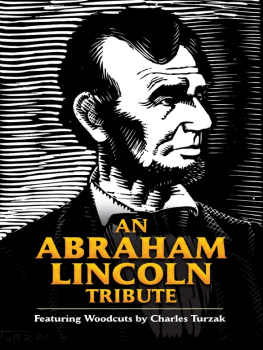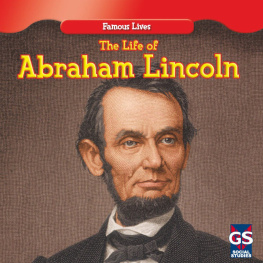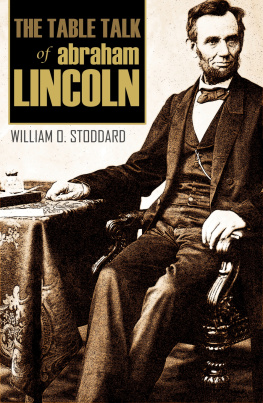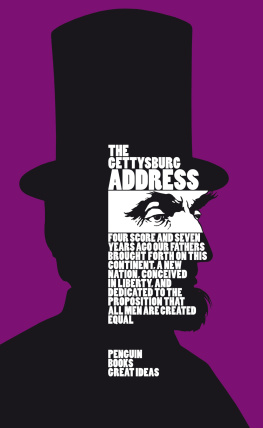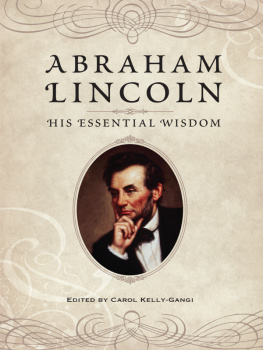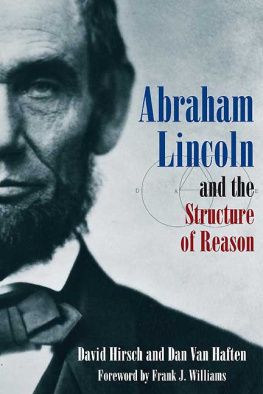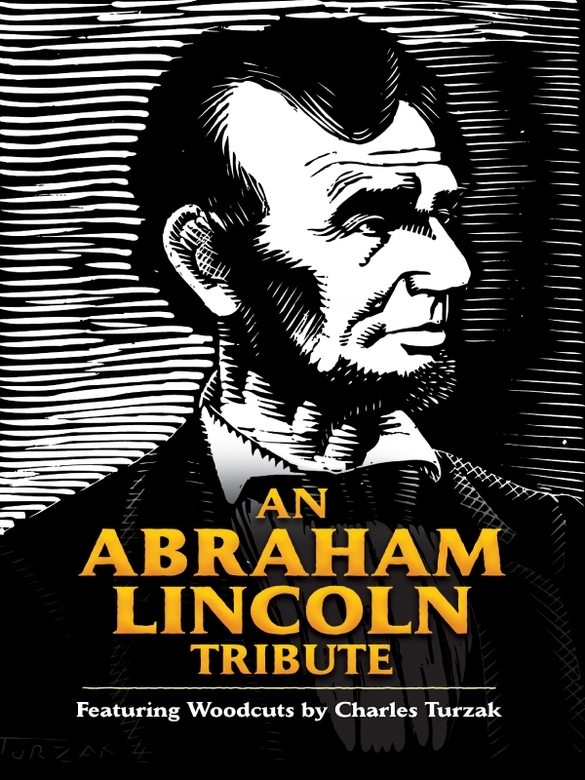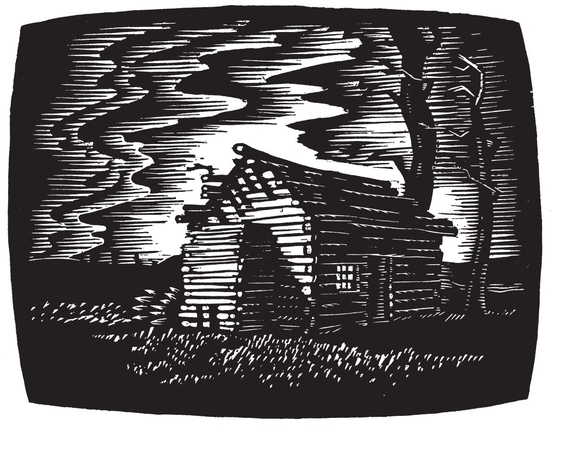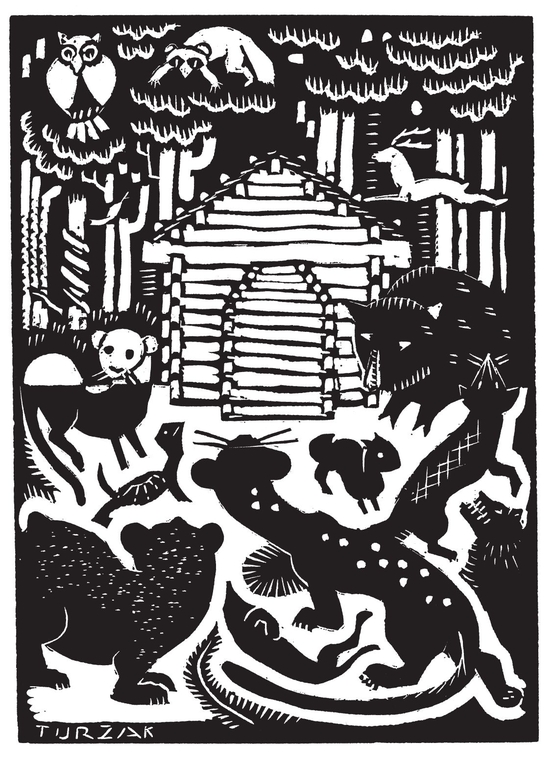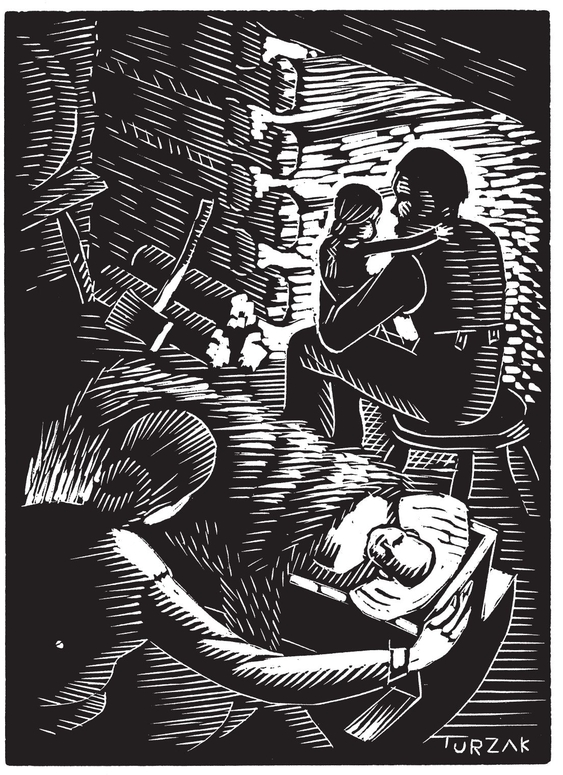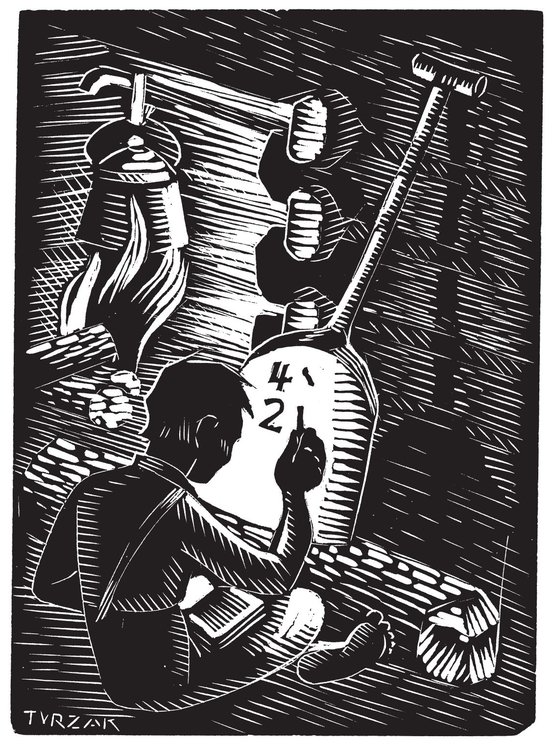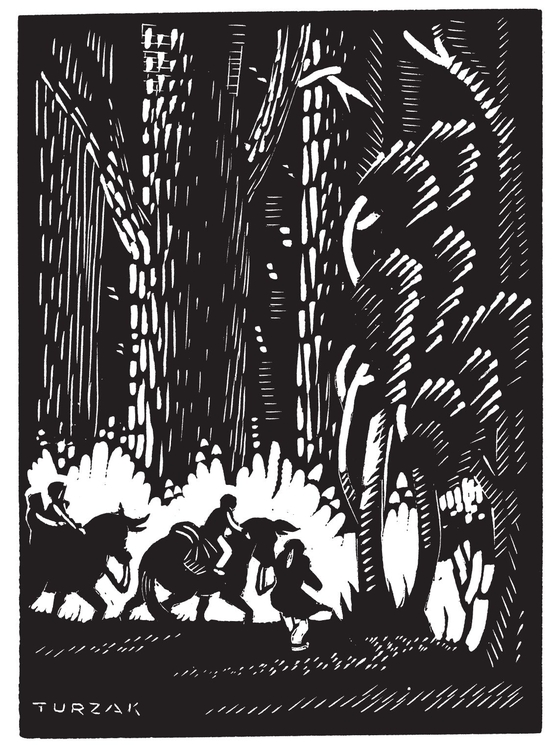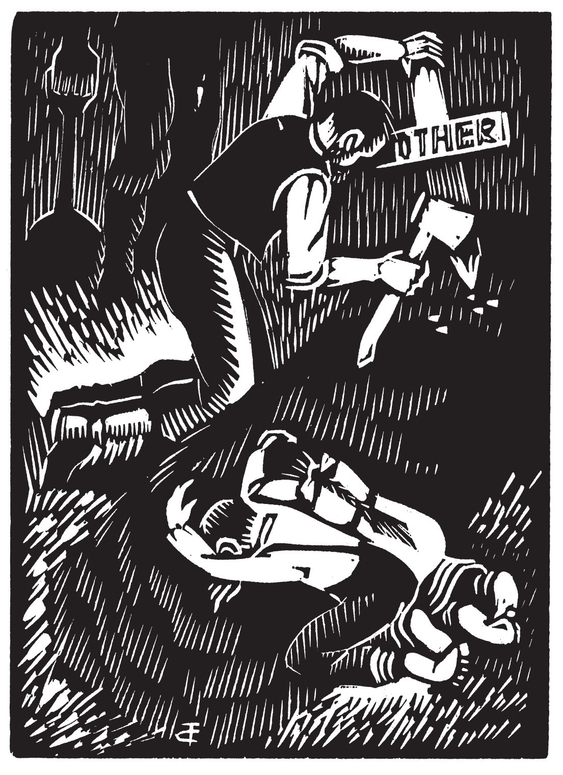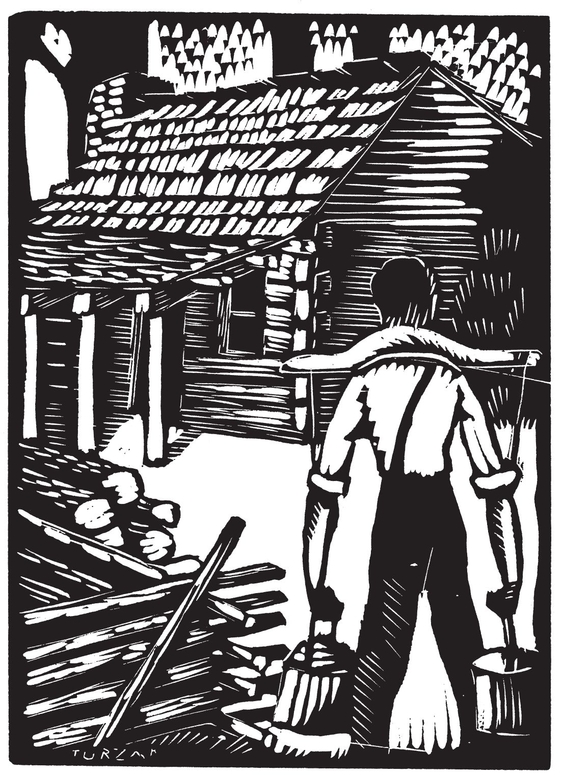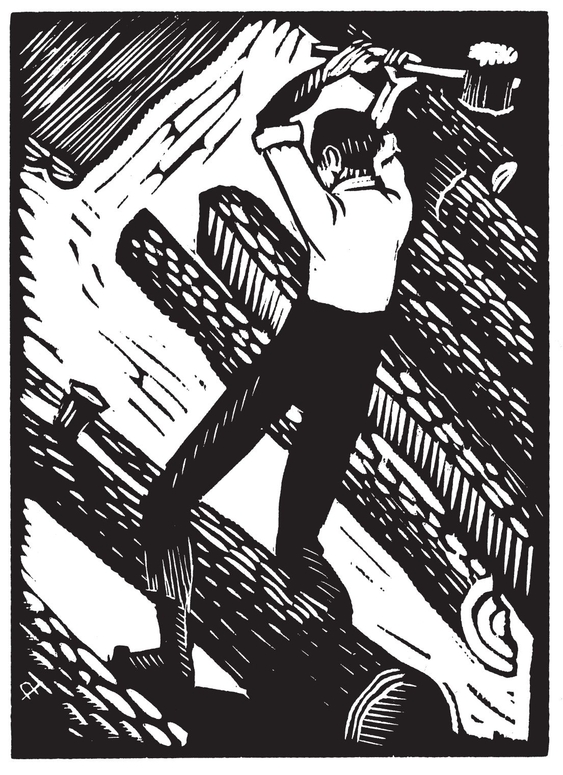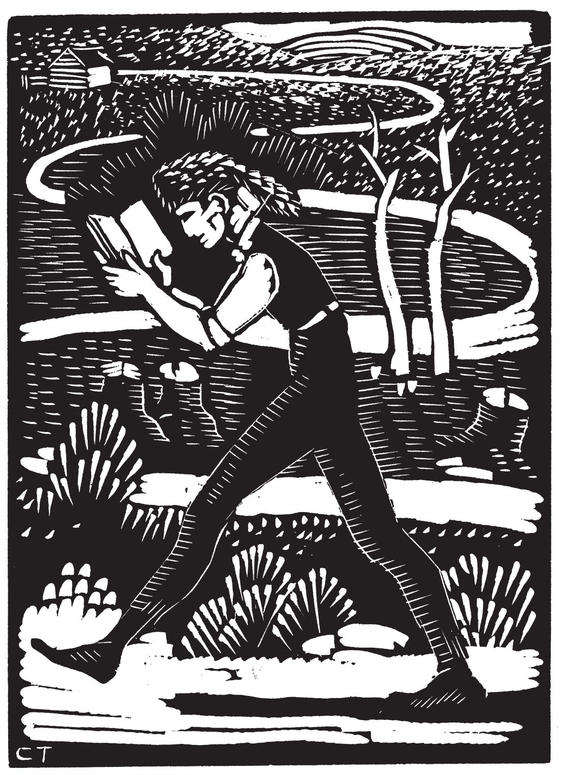ABOUT THE AUTHORS
David A. Beron is a woodcut novel historian, the author of Wordless Books: The Original Graphic Novels (2008), the Library Director at Plymouth State University, New Hampshire, and a member of the visiting faculty at the Center for Cartoon Studies, White River Junction, Vermont.
Bob Blaisdell is an English professor at the City University of New Yorks Kingsborough campus. A long-time book reviewer for the San Francisco Chronicle and other newspapers, he has edited many literary anthologies for Dover, including The Wit and Wisdom of Abraham Lincoln, The Civil War: A Book of Quotations, Famous Documents and Speeches of the Civil War, and Great Speeches by Native Americans.
LET US HAVE FAITH ...
Turzak quotes for his title the closing sentence of Lincolns vital address at Cooper Institute in New York City, February 27, 1860, which helped lead to his nomination as the Republican Partys presidential candidate.
In the spring of 1808, on the South Fork of Nolin Creek in Kentucky, the farmer Tom Lincoln built a log cabin for himself, his wife, and daughter. The floor was packed-down dirt, writes the biographer Carl Sandburg. One door, swung on leather hinges, let them in and out. One small window gave a lookout on the weather, the rain or snow, sun and trees, and the play of the rolling prairie and low hills. A stick-clay chimney carried the fire smoke up and away. Abraham arrived in the winter of 1809.
Let us have faith that right makes might; and in that faith let us to the end, dare to do our duty as we understand it.
BIRTH CABIN IN THE WOODS
In verse, Abraham evoked the frontier Thomas Lincoln met in the early years of the nineteenth century:
When first my father settled here,
Twas then the frontier line;
The panthers scream filled night with fear
And bears preyed on the swine.
[The Bear Hunt] (1846)
THE LINCOLN FAMILY
Sister Sarah (18071828), father Thomas (17801851), mother Nancy Hanks Lincoln (17841818), meet baby Abraham (18091865), born on a Sunday morning and named after his paternal grandfather.
A SIMPLE BEGINNING
When he was two, the family moved north to a farm on Knob Creek: Here little Abe grew out of one shirt into another, learned to walk and talk, and as he grew bigger how to be a chore boy, to run errands, carry water, fill the wood box, clean ashes from the fireplace. He learned the feel of blisters on his hands from using a hoe handle on rows of beans, onions, corn, potatoes.... That Knob Creek farm in their valley set round by high hills and deep gorges was the first home Abe Lincoln remembered.
At age fifty, recalling not Kentucky, but Indiana, Lincoln wrote: It was a wild region, with many bears and other wild animals still in the woods.
MOVING TO INDIANA
He was seven when the family moved from Kentucky, across the Ohio River, to Indiana, where Abe helped build the familys eighteen-by-twenty-foot log cabin.
GRAVE OF NANCY HANKS LINCOLN
Lincolns mother died on October 5, 1818, when Abraham was nine. In his thirties, Lincoln wrote verses about the feelings stirred up by memories of his life as a boy in Indiana:
My childhood home I see again,
And gladden with the view;
And still as memries crowd my brain,
Theres sadness in it too.
O memory! thou mid-way world
Twixt Earth and Paradise,
Where things decayed, and loved ones lost
In dreamy shadows rise.
c. February 25, 1846
Tom Lincoln took a log left over from the building of the cabin, and he and Dennis Hanks whipsawed it into planks, planed the planks smooth, and made them of a measure for a box to bury the dead wife and mother in. Little Abe, with a jackknife, whittled pine-wood pegs. And while Dennis and Abe held the planks, Tom bored holes and stuck the whittled pegs through the holes. This was the coffin they carried next day to the little timber clearing nearby.
INDIANA HOME
In 1819 Thomas Lincoln married Sarah Bush Johnston, a widow with children, and there were sometimes nine family members sleeping in the one-room cabin. Abrahams stepmother encouraged Abrahams strivings toward education, which he pursued before, during, and after his many chores.
SPLITTING RAILS
In Indiana as a teenager, writes Carl Sandburg, Often Abe worked alone in the timbers, daylong with only the sound of his own ax, or his own voice speaking to himself, or the crackling and swaying of branches in the wind, or the cries and whirrs of animals, of brown and silver-gray squirrels, of partridges, hawks, crows, turkeys, grouse, sparrows and the occasional wildcat. In wilderness loneliness he companioned with trees, with the faces of open sky and weather in changing seasons, with that individual one-man instrument, the ax.
Later, in Illinois, with his cousin John Hanks, he split 3,000 rails for fencing. (He thus became the Rail Candidate for President in 1860, with rails, purportedly split by him, displayed as part of his political campaign.)
BORROWING A BOOK
Abe was so hungry for books that if he heard about somebody with a volume he wanted, he would walk upwards of twenty miles to borrow it. The things I want to know are in books; my best friend is the man wholl git me a book I aint read, he was known to say. He seems to have read at every opportunity, even as he walked; at home or at leisure he would lie down with a book on his chest and his feet up higher than his head.
MOVING TO ILLINOIS
In 1829, Thomas Lincoln moved his extended family west to Illinoiss Sangamon County. Abraham later described one of the values of reading: A capacity and taste for reading gives access to whatever has already been discovered by others. It is the key, or one of the keys, to the already solved problems. And not only so, it gives a relish and facility for successfully pursuing the yet unsolved ones.

